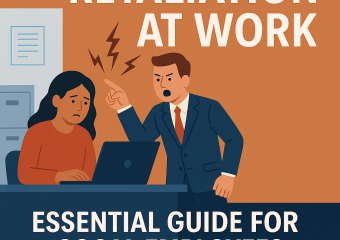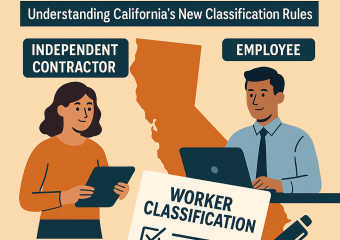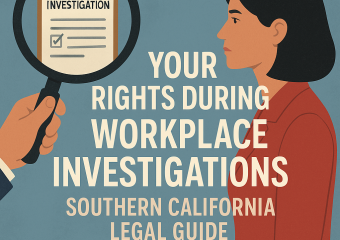Is Your Employer Breaking the Law? California Labor Code Violations Explained
Understanding California labor code violations is crucial for every employee working in the state. With a complex set of workplace laws designed to protect workers’ rights, many employees might unknowingly tolerate unfair or illegal treatment because they are simply unaware of what the law says. Whether it’s about wages, breaks, safety, or discrimination, California’s labor code outlines specific rules that employers must follow. If they don’t, they could be breaking the law—and you might be entitled to remedies.
What Are California Labor Code Violations?
California labor code violations occur when an employer fails to comply with the rules set forth in the California Labor Code. This set of statutes covers a wide variety of worker protections, including wage laws, working hours, employee classifications, workplace safety, and other employment conditions. Violations can range from relatively minor paperwork issues to serious offenses like wage theft or retaliation against employees.
Because California is known for having some of the most protective labor laws in the country, understanding these violations can empower workers to advocate for their rights. If you suspect your employer is not following the labor code, it’s important to recognize the common types of violations and know your options.
Common California Labor Code Violations
Wage and Hour Violations
One of the most frequently encountered California labor code violations involves wages and working hours. Examples include:
- Failure to pay minimum wage: Employers must pay at least the California minimum wage, which is higher than the federal level and varies based on location and business size.
- Unpaid overtime: Employees working over eight hours in a day or 40 hours in a week are generally entitled to overtime pay at 1.5 times their regular rate.
- Missed meal and rest breaks: California law requires employers to provide a 30-minute meal break for shifts over five hours and a 10-minute rest break for every four hours worked.
If an employer neglects to compensate appropriately for any of these, workers may have grounds for a wage claim.
Misclassification of Employees
Misclassifying workers as independent contractors instead of employees is a common violation that denies workers critical benefits such as minimum wage, unemployment insurance, and workers’ compensation. California uses the “ABC test” (codified in AB5 legislation) to determine proper classification, making it more difficult for employers to classify workers as contractors unless certain strict criteria are met.
Unsafe Working Conditions
Under California’s Occupational Safety and Health standards (Cal/OSHA), employers must maintain workplaces that are safe and free of hazards. Failure to provide appropriate safety equipment, training, or to correct known hazards is a labor code violation that can have severe consequences.
Retaliation Against Employees
California law protects workers from retaliation when they complain about violations or assert their workplace rights. Retaliatory actions—such as wrongful termination, demotion, or reduction in hours—are illegal under the labor code.
How to Identify if Your Employer is Breaking the Law
If you feel your employer is not following the rules, start by gathering evidence:
- Keep copies of pay stubs, timesheets, and employment agreements.
- Document work hours, breaks, and any communications regarding your work conditions.
- Note any safety issues or retaliatory behavior.
- Talk to coworkers to see if they share similar concerns.
If violations seem apparent, it may be time to consult with a labor law expert or contact the California Labor Commissioner’s Office.
What to Do If You Suspect a Labor Code Violation
The California Division of Labor Standards Enforcement (DLSE) is responsible for investigating complaints and enforcing labor laws. You can file a wage claim with the DLSE for issues involving unpaid wages or improper breaks.
If you face retaliation after raising concerns, you might have grounds for a retaliation claim, which can involve filing with the Labor Commissioner or pursuing a private lawsuit.
Employers who violate the California labor code may be required to pay back wages, penalties, and sometimes damages. In serious cases, criminal charges may also be pursued.
Protecting Your Rights as a California Worker
Staying informed about your rights is the best way to protect yourself. Here are some proactive steps:
- Review your pay stubs regularly to ensure correct wages.
- Keep track of your work hours, breaks, and any changes to your employment status.
- Attend any workplace safety training seriously, and report unsafe conditions.
- Don’t hesitate to speak up if you believe your rights are being violated—use formal complaint channels if necessary.
Union representation or consulting with labor rights lawyers can provide additional layers of protection and guidance.
Conclusion
Recognizing the signs of California labor code violations is essential for anyone employed in the state. Labor laws are designed to protect employees, ensure fair pay, and maintain safe working conditions. If your employer is failing in any of these duties, they could be breaking the law—and you have options for recourse. By understanding your rights and knowing how to report violations, you can help secure better working conditions not only for yourself but also for your fellow workers.




